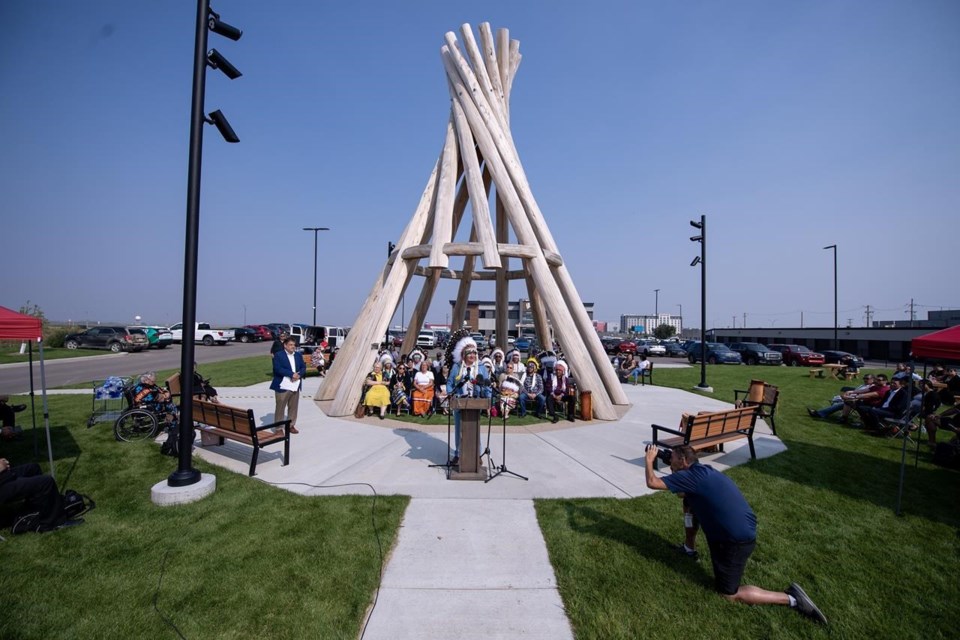SASKATOON — The Federation of Sovereign Indigenous Nations has announced plans to sue the federal and provincial governments over legislation chiefs say infringes on treaty rights.
"This is our biggest treaty battle," Chief Bobby Cameron said Tuesday at a news conference with chiefs from Saskatchewan, as well as Alberta and Manitoba.
Cameron said the statement of claim will be a constitutional challenge against the Saskatchewan First Act, passed by the provincial government earlier this year, and the Natural Resources Transfer Agreement between the Prairie provinces and Ottawa.
Cameron warned resource development companies looking to Saskatchewan that a "battle is brewing," saying Indigenous people are entitled to resource-revenue sharing. He said the federation is looking for a 25 per cent resource-sharing deal across the board as its starting point for negotiations.
Cameron said the statement of claim has not yet been filed in court.
The province said in an emailed statement that it is confident that the Saskatchewan First Act is constitutionally sound and it is prepared to defend it against a legal challenge.
It also said the Natural Resources Transfer Agreement is entrenched in the Constitution of Canada.
The federal government has not yet provided a response.
Cowessess First Nation Chief Erica Beaudin said the federal resource agreements were wrongfully and illegally passed in 1930, and Indigenous leaders have no choice but to use the courts.
She said they must make sure any resource extraction is done in a respectful manner.
"This is our responsibility as chiefs, as mothers," Beaudin said.
The federation, which represents 74 First Nations in Saskatchewan, had already warned the governing Saskatchewan Party that it would take action against the legislation.
The Saskatchewan First Act, which passed in March, unilaterally amended the Constitution to assert provincial jurisdiction over resources and set up a tribunal to be used in future court cases.
Premier Scott Moe has said the act doesn’t affect treaty rights and is aimed at growing the economy to benefit all people, including Indigenous people.
The chiefs said that legislation was an extension of the federal agreements' infringement on rights.
Indigenous leaders have previously called for the federal agreements to be rescinded, including to former justice minister David Lametti at the Assembly of First Nations special chiefs meeting in April.
Prime Minister Justin Trudeau said at the time that his Liberal government was not reviewing the agreements. His comments were in response to a joint statement from the Prairie premiers criticizing Lametti's comments at the chiefs' meeting.
Shoal Lake Cree Nation Chief Marcel Head said he did not agree with taking the issue of resource rights to the courts. He said Indigenous communities can still meet Ottawa and provinces at the table to negotiate.
"There's a better way to do this," Head said after the federation's announcement.
Other chiefs said Indigenous communities had waited long enough for their fair share, especially as Saskatchewan pushes to make its mark in the global rare earth elements market.
"The world is watching Canada, how they are treating Indigenous people (and) the land," said Chief George Cote of the Cote First Nation.
This report by The Canadian Press was first published Aug. 29, 2023.
Kelly Geraldine Malone, The Canadian Press



